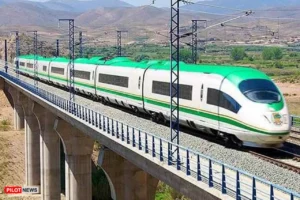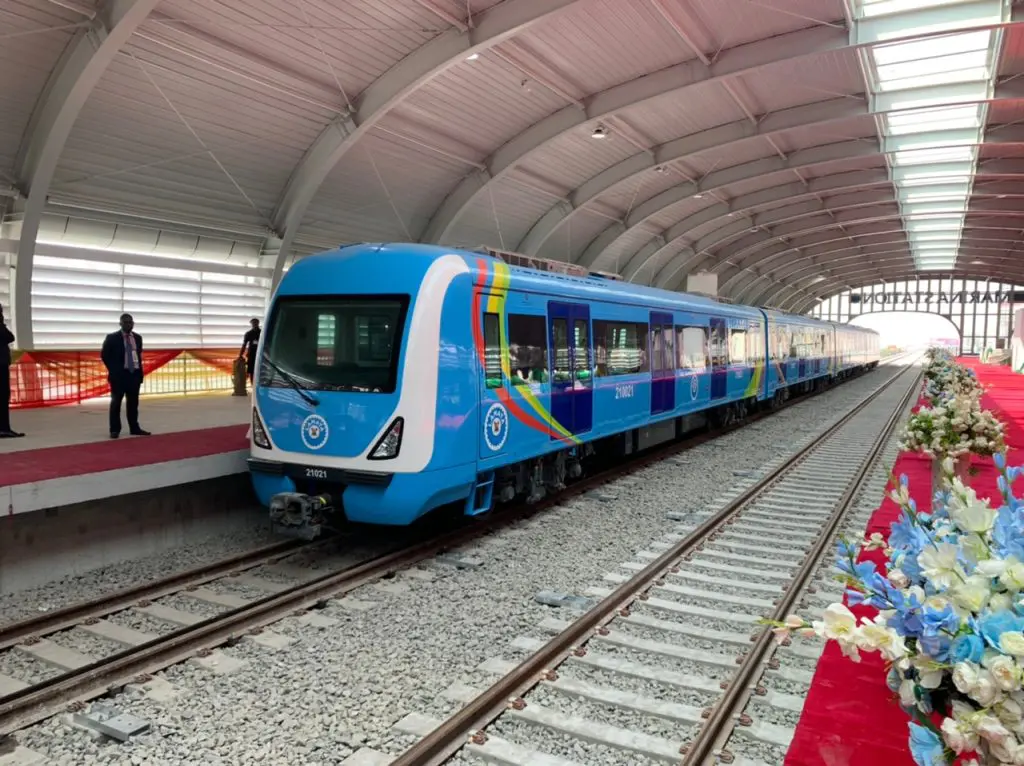The Lagos State Government has officially unveiled the Green Line Metro Rail Project, an expansive 68-kilometre rapid transit corridor designed to connect Marina to Lekki. The high-capacity rail system is expected to accommodate more than 500,000 passengers daily upon completion, significantly easing the transportation burden across one of the most densely populated corridors in Nigeria’s commercial capital.
A Strategic Leap in Urban Mobility
Unveiled as part of the Lagos State government’s long-term urban development and sustainable transportation strategy, the Green Line represents a major milestone in the state’s integrated mass transit blueprint. Once operational, the line will link key residential and business districts, drastically cutting travel time between the Lagos Island central business district and the rapidly expanding Lekki-Epe axis.
The metro line will span several communities, including Ikoyi, Victoria Island, Lekki Phase 1, Chevron, Ajah, and the Free Trade Zone, before eventually reaching Epe. This corridor, known for its notorious traffic congestion, will now benefit from a dependable and efficient alternative to road-based transportation.

Designed to Meet Global Standards
According to project briefings, the Green Line will feature state-of-the-art infrastructure, modern railcars, and an automated signaling system. Trains will run on elevated and at-grade tracks, with well-designed terminals and interchange hubs that integrate seamlessly with other existing and upcoming rail lines such as the Blue and Red Lines.
The system will be powered using electricity, in line with the state’s push for environmentally friendly transport solutions. It will also incorporate real-time passenger information systems, safety monitoring technology, and provisions for passengers with limited mobility.
High Ridership, Major Economic Impact
Authorities estimate that the line will serve over half a million commuters daily, reducing travel time by more than 60% along the route. This is expected to provide significant relief to the overburdened Lekki-Epe Expressway, while simultaneously supporting the broader economic activities within Lagos’ booming eastern corridor.
The project is also set to create thousands of construction and operational jobs, as well as encourage investments in real estate, logistics, and retail along the rail corridor. With smoother access to the Lekki Free Trade Zone and the Lekki Deep Sea Port, the Green Line is poised to enhance industrial growth and boost Nigeria’s overall competitiveness.
Public-Private Partnership Model
The Green Line is being developed under a robust Public-Private Partnership (PPP) framework, with key funding support from domestic and international investors. The Lagos Metropolitan Area Transport Authority (LAMATA) is coordinating the project alongside technical and financial partners who bring expertise in railway engineering, transport financing, and urban planning.
This financing model allows the state government to fast-track infrastructure delivery while sharing long-term operational risks with private stakeholders.
Project Timeline and Future Expansion
Preliminary engineering and feasibility studies for the Green Line have been completed, and construction activities are expected to kick off in the coming months. Government officials have projected phased commissioning of stations, starting from Marina, with a target to reach full completion within the next few years.
There are also discussions about future extensions of the Green Line to enhance regional connectivity beyond Lagos, especially toward Ogun State, in line with long-term plans to build a West African sub-regional rail network.
A Greener, More Connected Lagos
The unveiling of the Green Line comes at a time when Lagos is taking bold steps toward building a multi-modal transportation system that combines road, rail, and water transport. It is also part of broader environmental goals aimed at reducing carbon emissions and traffic-induced pollution.
With traffic gridlock costing billions annually in lost productivity, this project is widely viewed as a turning point in Lagos’ urban planning strategy. When completed, the Green Line metro is expected to reshape commuting culture, foster greater inclusivity in public transport, and enhance the city’s global competitiveness.







